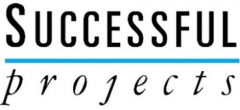Estimation
Estimation is part of our everyday experience, we do it without even thinking much about it. When you’re at the grocery store, you might estimate the cost of the items you put in your shopping cart by keeping a running total in your head. Or, if you are out to dinner with friends and are splitting the cost, you estimate everyone’s contribution. We work in a world of estimates in our jobs as well. How much time will it take you to create a marketing video, Joe? How much will it cost to create that brochure Sara? Rarely do we know all the facts up front and there could be many variables at play that impact our estimates. Enlisting careful consideration and best practices when estimating in our projects, allows us to reach more accurate and defendable estimates.
Tips
Compare actuals to estimates. After the work has been done, compare the actual time the work took to the original estimate. Track the percent you are off (either under or over) and report that information back to the team members. The best way to improve estimating accuracy is by paying attention. The best way to pay attention is by tracking metrics.
Use more than one approach or more than one person, or both. After you have one estimate, compare the logic using either another estimating approach or another person’s perspective.
Clearly write out what makes this work complete. Many times, there are unknown needed revisions, quality acceptance criteria, and a level of completeness that has not been clearly thought out, not to mention communicated to the person doing the estimating.
Present estimates in either a range or by indicating your level of confidence. For example, our project team estimates this will cost $100,000, and we have a confidence level of -20% to +60% (meaning it could very possibly fall between $80,000 and $160,000).
Understand the definition of an estimate. In many knowledge projects (such as engineering, research, IT, creative, etc) the time work takes to create unique deliverables can be extremely difficult to accurately estimate. And eventually, the estimation discussion turns into a risk tolerance question. It generally needs to be agreed that without seriously inflating estimates to turn them into guarantees, that schedules are best planned with some flexibility and contingency for going over. There are diminishing returns in over-analyzing the project.
Ask SMEs. Subject matter experts (SMEs) can be a big help, especially in informing project managers what the commonly overlooked work or costs are. There are very common estimation omissions. You will benefit from questioning what they are.
Activities
Test Your Estimating Power – How Accurate are You?
For each question below, provide a low and high boundary for which you feel you are 90% correct. Do not cheat and do an Internet search.
How many taste buds does a human baby have?
What year was the first successful heart transplant performed?
In the US, how many people report being bitten by a cat in a year?
The point of this is, the world is a surprisingly unknowable place and we are estimating incorrectly all the time.
Successful Projects – Estimating Challenge!
We have an activity that can be used by teams and by instructors to help improve your estimating skills by raising awareness of accuracy. It may sound crazy, but many people repeatedly use habitual time estimates for activities without ever paying attention to correcting for reality and accuracy. In addition to increasing your sensitivity, this exercise will also cover estimating terminology and give you an opportunity to see how well you do in an estimating exercise.
Any project, however big or small, and regardless of the industry, needs to be performed and delivered under certain constraints. Being able to provide accuracy in your time and cost estimates during project planning puts you to be in a better position to track and control you project as it progresses and spot potential issues before they occur.

